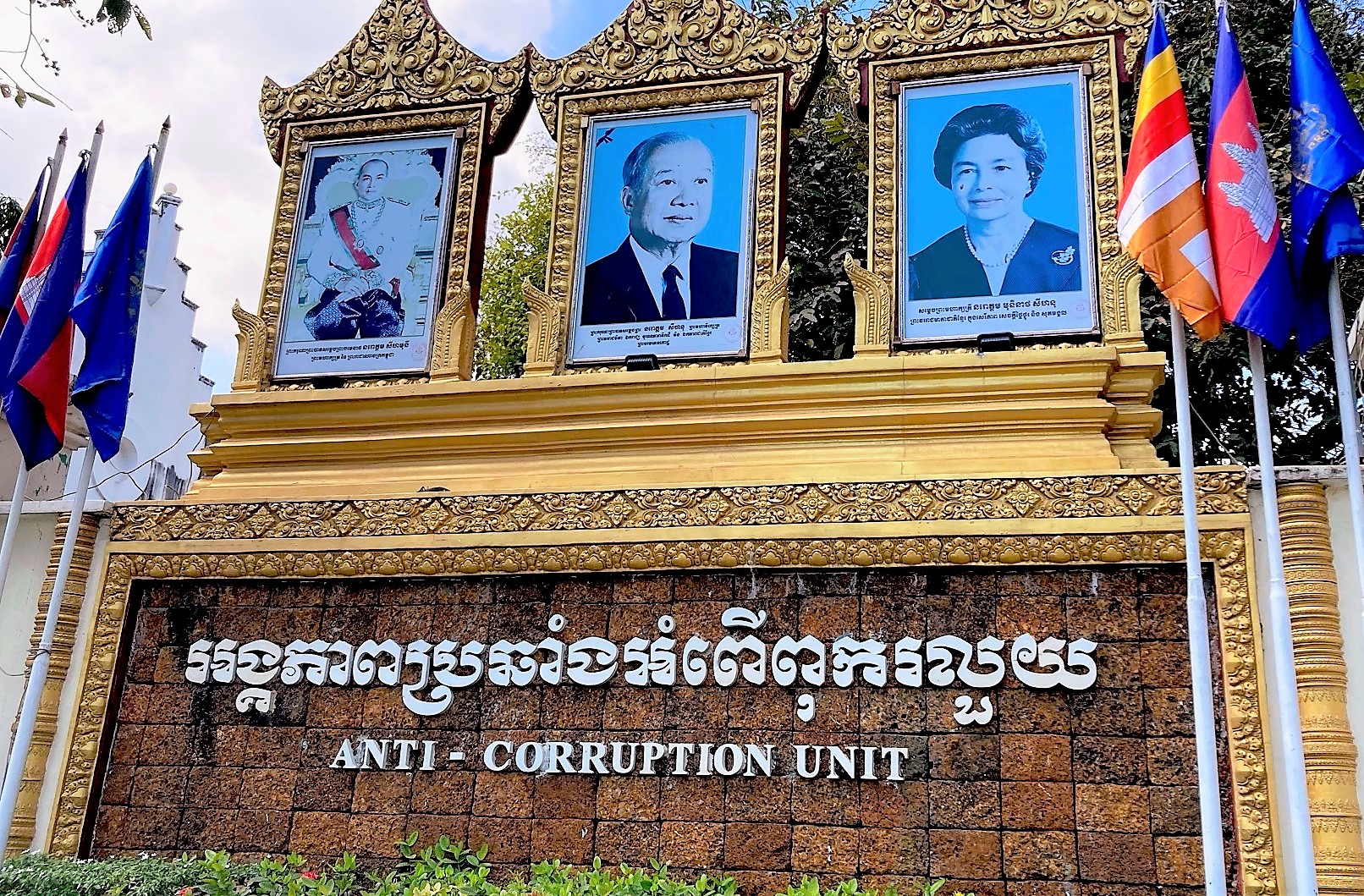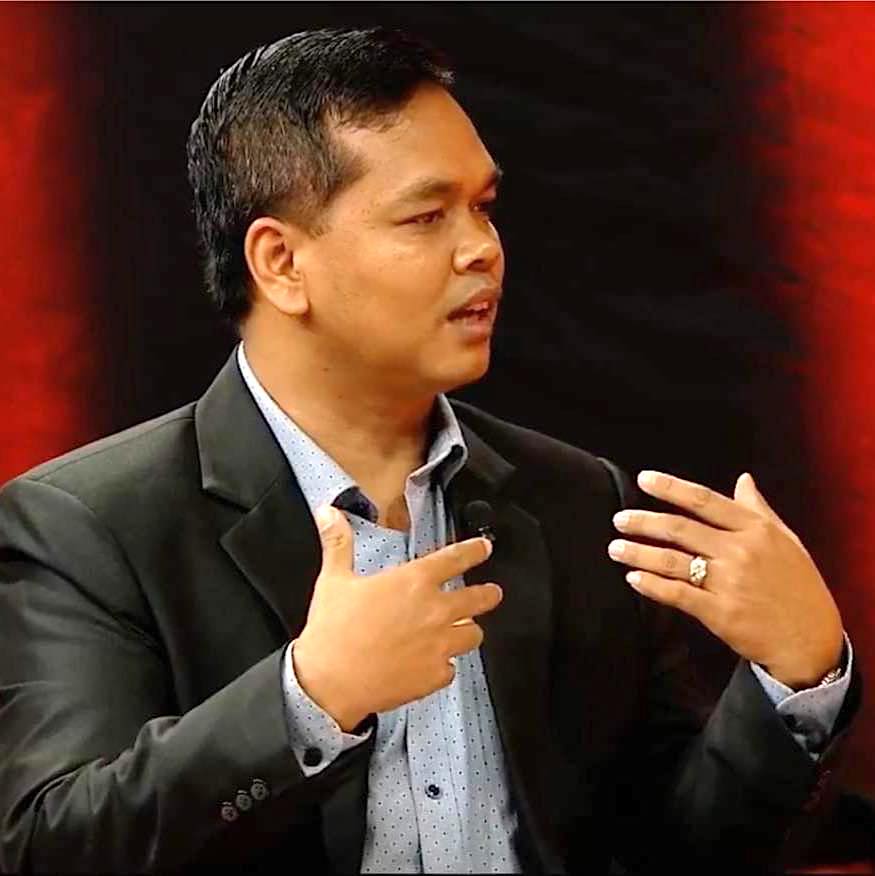When Cambodian university student Kong Bunrith claimed on Facebook that dozens of his classmates paid bribes to pass their exams and named the government officials allegedly involved, authorities promptly began an investigation.
But the Ministry of Justice chose to focus its investigation on Bunrith, who found himself facing charges of incitement, slander and defamation and was called into court for questioning following his February 2020 post.
A report signed by 55 of his classmates urged authorities to take legal action against Bunrith, stating the Royal Academy of Judicial Professions exam results were entirely based on meritocracy. They noted Bunrith had failed his exam and questioned his motives.
Yet cheating and bribery have long been considered issues in Cambodia’s education system, with more than 70% of high school students failing the Kingdom’s national exam in 2014 after an ethics and corruption crackdown. The previous year, 80% of students passed.
Bunrith cited his court case when declining to answer questions from the Globe on 17 January. “All I want is the transparency of the exam result,” he said.
In previous public statements he claimed to have received the information from a confidential source and only wished to alert authorities. Bunrith and five of his classmates contacted Transparency International seeking support, saying they were suspicious the exam results were not publicly released, unlike in previous years.
After weeks of pressure, publicity and the prospect of a prison sentence, Bunrith backed off his claim, according to Im Norin, programmes director at Transparency International Cambodia.
“I don’t blame the man,” Norin said. “Because he didn’t have a choice. If he kept going, he will be punished. It’s better to stop calling for action.”
Sreymao Sao, one of Bunrith’s classmates who contacted Transparency International, said the exam should have been investigated further. Wary of what happened to Bunrith, she claimed to be hesitant to allege corruption again without definitive proof.

“I think I’ll be more careful next time, I won’t speak out about anything unless there’s evidence,” she said. “We just want to improve the system.”
For political scientists and human rights organisations, Bunrith and similar cases illustrate the danger of whistleblowing in Cambodia: people who allege corruption often become government targets.
“There are many cases where information about serious wrongdoing was not properly investigated,” said Chanroeun Pa, president of the think tank Cambodian Institute for Democracy (CID). “On the contrary, the authorities investigated those who release the information.”

The absence of meaningful whistleblower protections is a symptom of the deeper political dysfunction of the Cambodian government and the system of patronage it is built upon, NGOs, academics and persecuted opposition figures say.
Transparency International and other NGOs have pressed for the adoption of more robust protections, including a whistleblower protection law that has been caught in a years-long legislative limbo.
There are currently no clear measures to prevent the prosecution of people speaking out against corruption in their workplaces, nor are there laws obligating civil servants and public officials to report corruption, according to a 2021 Transparency International report conducted as part of the United Nations Convention Against Corruption review of Cambodia.
“This government cannot operate without corruption,” Norin said. “Their main purpose is not to make [the country] clean, their main purpose is to remain in power.”
While Cambodia has enacted numerous anti-corruption reforms in recent years, including the formation of an Anti-Corruption Unit (ACU) and enactment of an Anti-Corruption Law. Critics argue these measures, especially the ACU, are another tool for government oppression.
The head of the ACU, an ostensibly independent body investigating corruption, is appointed by Hun Sen, the world’s longest serving prime minister who solidified his party’s power in a 1997 coup.
“Anti-corruption can be used as a cudgel to get enemies, knock-out competitors and consolidate power,” said Sophal Ear, an Arizona State University associate professor who studies political economy.
Officials within Hun Sen’s ruling party, the Cambodian People’s Party (CPP), have faced charges of corruption. Former South Korea ambassador Suth Dina was imprisoned in 2016 for amassing millions during his stint in diplomacy before receiving a pardon in 2020.
However, anti-corruption cases are rare. NGO leaders claim that, instead of actively rooting out bureaucratic corruption, the ACU weeds out officials who have lost favour with the CPP or are part of power struggles.
Sarah Milne, a senior lecturer at Australian National University, argues anti-corruption reforms can paradoxically increase alongside rising authoritarianism, as in Cambodia. But these changes are often selective and regime-friendly, meaning they do not take on the shadow economy in which public resources are illegally pilfered by powerful elites.
Some of the money is injected back into the government through donations and other established practices such as a minimum $500,000 price tag required to receive the oknha title of nobility, Milne said.
“As soon as someone gets in the way of the money, the illicit financial flows, there are consequences,” she said. “Anyone who oversteps the mark will know, in no uncertain terms.”
Legal provisions for whistleblowing warn potential informants they could face prosecution on defamation or disinformation charges. Article 41 of the Anti-Corruption Law states anyone who alleges corruption can be imprisoned for up to six months if their claims are not upheld by an investigation.
For years, human rights groups have pushed for development of a more robust whistleblower protection law, which would prevent investigations into whistleblowers who did not intentionally provide information deemed false by investigators, according to Transparency International.
“Everyday Cambodians witness indignities and corrupt activity, but the rule of man does not permit them to speak for they would pay harsh consequences,” Ear said. “It’s very hard to imagine anything but horrible consequences as a result of whistleblowing in [Cambodia].”
The law to expand whistleblower protections has been stalled for years with no government official in the Ministry of Justice or the ACU willing to champion the measure.
“They keep throwing it at each other, pointing at each other,” Norin said of the agencies, which each claim the other has responsibility for the law.
Neither the ACU nor the Ministry of Justice answered questions submitted in writing by the Globe.
Not every whistleblower is shut down.
Touch Sok, president of the Royal Academy of Cambodia, expressed concerns last year about land grabs and environmental degradation he encountered in the Tonle Sap region.
While his goal was to review deforestation around the flooded forests of Tonle Sap lake, the largest body of freshwater in Southeast Asia and a primary water source for Cambodia, Sok was compelled to speak out before the conclusion of his research due to what he perceived as the problem’s urgency.
CDI president Pa noted Sok is a high-ranking CPP official and has experienced intimidation and threats for drawing attention to land grabs and corruption by local authorities.
But rather than suppressing the government scientist, Hun Sen exhorted local authorities and the military to reclaim protected lands around the lake in a 28 November statement. The prime minister called the situation “unacceptable and unforgivable” and urged the ACU to prosecute those involved in the destruction and land grabs.
Activists applauded the reclamation of more than 600 square kilometres (231 square miles) following the prime minister’s call to action, but wondered why such initiatives had not been taken sooner following previous alarms raised by conservationists. They also urged similar action to be taken in other protected areas with documented illegal deforestation.
Despite the repercussions of speaking out suffered by others, like student whistleblower Bunrith, Sok continues his research and posts updated Tonle Sap videos on Facebook.
Additional reporting by Samphors Sao.
This article is a part of an ongoing partnership with Transparency International Cambodia meant to accentuate issues along with practical solutions concerning good governance and anti-corruption in Cambodia. Learn more about the partnership here.


